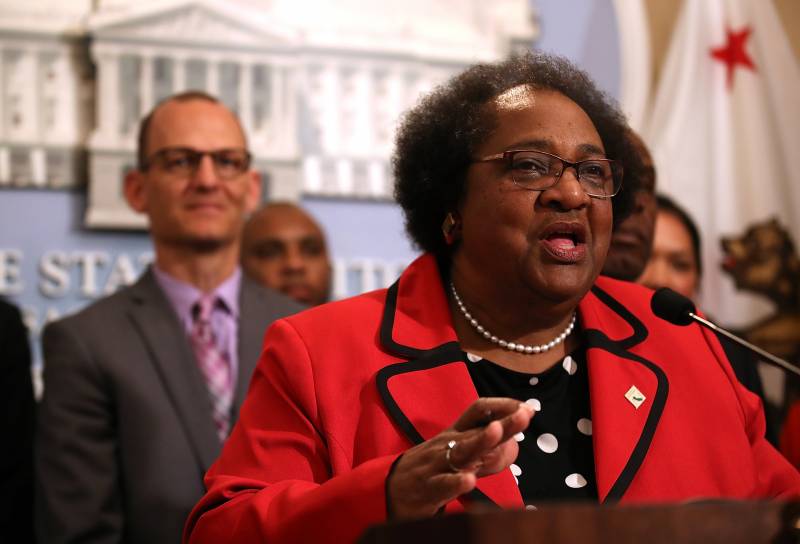A proposal to establish a task force to study and prepare recommendations for how to give reparations to Black Americans passed the California Assembly on Thursday.
The bill advanced with a 56-5 vote as protests nationwide over police brutality re-energized the movement for racial justice and activists pressed for sweeping reforms. It is a top priority for California's Legislative Black Caucus.
If the bill passes the state Senate and is signed into law by Gov. Gavin Newsom, eight people with backgrounds in racial justice reforms would lead a study into who would be eligible for compensation due to slavery and how it should be awarded.
Assemblywoman Shirley Weber, a Democrat from San Diego who wrote the bill, said the study would reiterate California's history of abetting slavery, even as it joined the union as a "free state" in 1850.
"The discriminatory practices of the past echo into the everyday lives of today's Californians," said Weber, who leads the Legislative Black Caucus.

